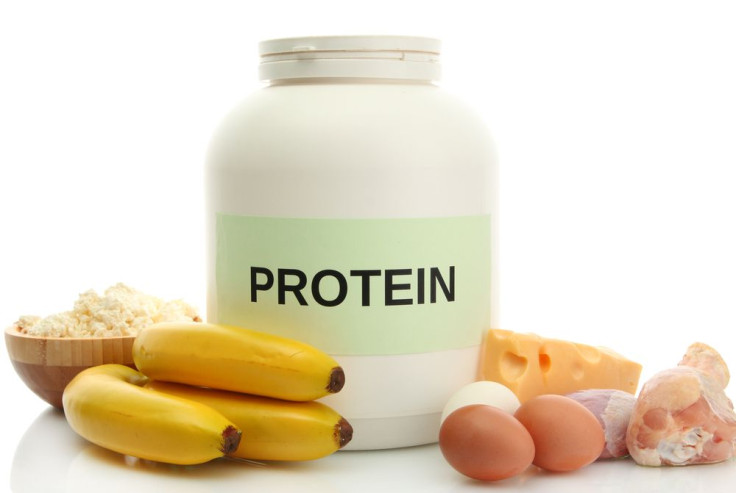Protein-Rich Breakfasts Can Reduce Calorie Intake At Lunch, Due To Feelings Of Fullness

Whether you’re looking to bulk up or slim down, protein should be an essential part of your diet and accounted for in each of your daily meals. A study presented at the American Society for Nutrition's Experimental Biology conference has revealed that adding a sufficient amount of protein to your breakfast can reduce hunger throughout the day and curb the amount of calories you take in at lunch.
"There is great value in understanding protein's true power when optimal amounts are consumed,” head of nutrition research at Hillshire Brands, Dr. Kristin Harris, said in a statement. “Protein is top of mind, but consumers should be more informed about how much protein they need at each meal occasion so they can maximize benefits, like hunger control.”
Harris and her colleagues from Hillshire Brands asked individuals participating in the study to consume six different breakfast meals including three turkey-sausage and egg-based breakfast bowls, cereal and milk, pancakes and syrup, and no breakfast at all. Before eating breakfast and at 30-minute intervals for four hours after breakfast, each participant was asked to rate their level of hunger. When the four hours passed, they were given a lunch consisting of pasta in which they ate until their appetite was satisfied.
Although each meal had the same amount of calories, fat, and fiber, they were all different in the amount of protein they contained. The three turkey-sausage and egg-based breakfast bowls contained 40, 23, and 9 grams of protein, respectively; the cereal and milk contained 8 grams of protein; and the pancakes with syrup contained 3 grams of protein. The group that ate the breakfast meals with the highest amount of protein reported having more appetite satisfaction over the course of the morning and consumed fewer calories during lunch compared to the group that ate lower-calorie breakfast meals.
"Hillshire Brands expects to continue to leverage clinical research to drive innovation, which includes delivering consumer-preferred products that meet health and wellness needs," Harris added.
According to the Centers for Disease Control and Prevention, proteins are an essential part of our body’s cells, tissue, and organs. Since bodily protein is constantly being broken down and replaced, it is important to eat foods that are a healthy source of protein, including meat, poultry, fish, eggs, beans, nuts, and milk products. The Recommended Dietary Allowances (RDA) of protein for women over the age of 19 is 46 grams per day. The RDA of protein for men over the age 19 is 56 grams per day.



























